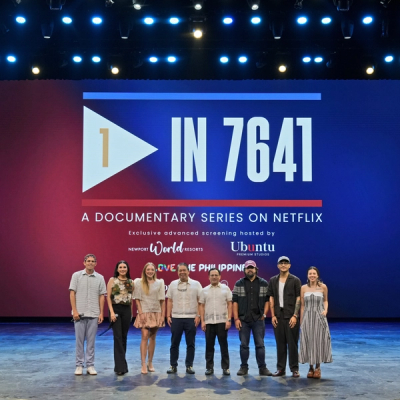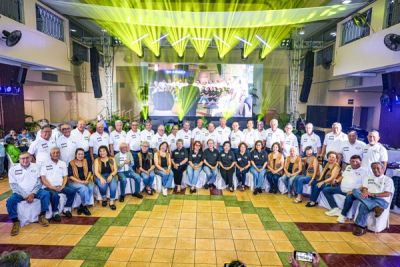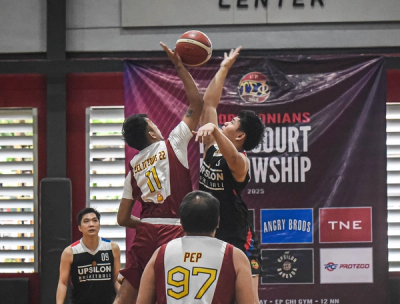Politics & Government
The Gordon Paradox
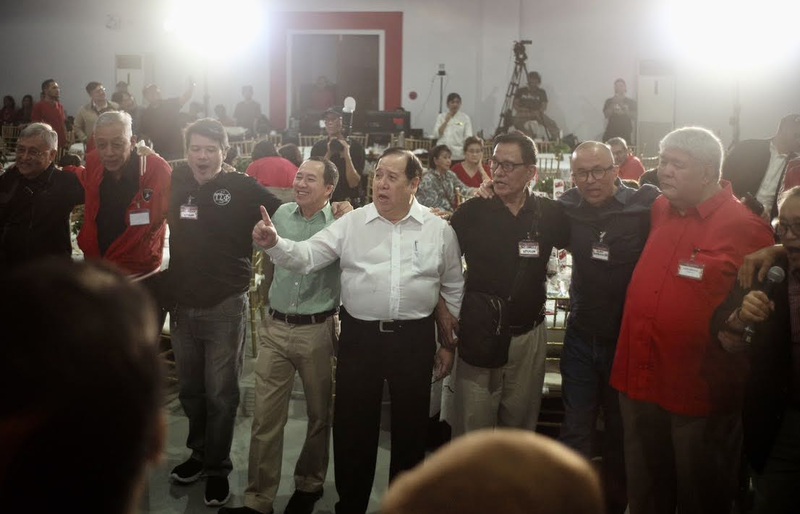
The hall was packed: old allies from the Subic days, Red Cross volunteers in their trademark vests, former Senate staffers, and a sprinkling of political veterans. It was Richard “Dick” Gordon’s 80th birthday, but it felt more like a homecoming rally than a party. The food and beverages were excellent without being lavish. There was a live band; a good time was being had by all.
When he took the stage, as expected, his presence filled the room. He spoke as he always did, at length. Gordon had them the way he always does: moving from hard truths to self-deprecating jokes, shifting from stories about typhoon rescues to blunt assessments of the nation’s failings. One minute, the audience was laughing, the next, they were nodding in agreement.

Among those spotted were the Subic “Young Guns” who ran the gauntlet with Dick during Subic’s trial by fire in the 90s. People like Atty Inky Reyes '78, now a top lawyer, and Dondi Alikpala '81, a leading advocate of strategic water resource management. Also, there were businessmen and UP Fraternity brother Vic Puyat '57, and former UP President Danilo Concepcion '89. Of course, representatives from the International Red Cross and Red Crescent, along with Ateneo schoolmates, since, after all, Dick was a Varsity Cheerleader back in college. Their presence underscored the breadth of Gordon’s network, civic, business, and academic, and the respect he still commands at 80.
And as the celebrant’s speech wore on, I noticed a few guests started looking at their watches. But then I also saw people listening intently to the celebrant’s every word. And they seemed to be doing so, not as giggly fans but more like kindred spirits. They didn’t look like poobahs or top bureaucrats. They were clad in work clothes; in iconic red PRC shirts, coveralls, and such. They had names like Jaylord Abrigado, Criselda Longga, and Leo Ebajo, who, like so many others present in red shirts or rescue coveralls, had gone through hell and high water to fulfil the Red Cross ethos “prevent and relieve human suffering everywhere.”
To them, Dick’s speech wasn’t all self-congratulation and humbug. It was about them living the mission anywhere and anytime there’s a call: typhoons, earthquakes, disasters, both natural and man-made. And they beamed with pride at every recounting of their rescue and relief work; their “days in the office,” so to speak. No, these people weren’t high officials dangling lofty titles. They were way more. They were the salt of the earth.
Still, Gordon isn’t a politician to fall in love with. He does not flirt with voters. He does not sell charm. What he sells, though, is results in a country where popularity often trumps performance. This has been both his strength and his curse.
When the ground shakes, the floodwaters rise, or the typhoon roars in, Gordon is the man people want on the scene. His record is proof. He rebuilt Subic Bay from a shuttered U.S. naval base into an economic engine. He modernized the Philippine Red Cross, making it a model for disaster response in Southeast Asia. His manner can be brusque, his tone commanding, but in chaos, he becomes indispensable. “In an emergency, you don’t have time to be popular,” Gordon once said. “You have to act. People’s lives depend on it.”
He is no stranger to personal loss. His father, then mayor of Olongapo, was assassinated by a political gunman when Gordon was just 18. The trauma could have driven him to bitterness or retreat, but instead, it hardened his resolve. He chose public service not as a platform for vengeance but as a commitment to rebuild and lead. This personal witness to tragedy shaped the way he approached leadership. He has seen human suffering up close, poverty, disaster, and corruption, and his instinct has always been to take action rather than merely rant or pound the table. In moments when others freeze or lash out, Gordon had shown the ability to operate decisively under pressure, keeping his head when all about him were losing theirs.
Despite a formidable résumé, Gordon’s bids for the presidency have fallen short. The paradox is clear: the leader most qualified to run the country is the least likely to win its highest office. In quiet times, voters tend to see him as too blunt, too arrogant, too unwilling to bend to the winds of popularity. But in a crisis, even his critics admit they want him in charge. He is, in effect, the nation’s Ghostbuster: earthquake, supertyphoon, or super-anomaly: call Gordon Gordon. Just don’t call him Senator, or President.
Gordon’s record in the Senate has been equally defined by his readiness to confront uncomfortable truths. As chair of the Blue Ribbon Committee, he led investigations into some of the most explosive political scandals in recent memory. During the Dengvaxia controversy, he pushed for accountability and clear communication to restore public trust in the country’s immunization programs. In the Pharmally scandal, Gordon’s committee uncovered irregularities in pandemic procurement, exposing how billions in public funds were mishandled under the guise of urgency. These hearings did not always make him popular with the political establishment, but they reinforced his reputation for tenacity.
He also played a role in safeguarding electoral integrity. Gordon welcomed the Supreme Court ruling upholding the legality of automated voting machines, seeing it as a step toward reducing human manipulation of election results. For him, clean elections were not a partisan issue but the foundation of national stability.
His signature achievement is the transformation of Subic Bay. When the U.S. Navy withdrew in 1992, many saw only economic collapse. Gordon saw an opportunity. Rallying thousands of volunteers, he turned the former base into a thriving freeport, attracting foreign investment and creating jobs. This “Subic Model” became a case study in leadership that fuses vision with execution.
Gordon’s electoral struggles reveal a cultural fault line in Philippine politics. Many voters want leaders to be approachable, photogenic, and endlessly flattering. Gordon is none of these. He speaks in clipped sentences, interrupts rambling questions, and refuses to sugarcoat hard truths. In a country still wrestling with personality politics, such candor can be fatal to a national campaign. But perhaps that is the essence of the Gordon Paradox: the very traits that make him indispensable in a disaster make him unpalatable at the ballot box.
Now, as he stood in that Red Cross hall on his 80th birthday, there was an undercurrent in the air. Some in the crowd wondered if this was more than a celebration — if it was a soft launch for a Senate comeback. He didn’t make any announcements. But in a country bracing for the next disaster — whether it comes from nature, politics, or geopolitics — the idea didn’t seem far-fetched.
The Philippines may never choose him as captain in calm waters. But in a storm? They know exactly who to call. And if Gordon does make the run, it will be on that truth: the traits people grumble about in fair weather are often the very ones they need when the sky turns black.
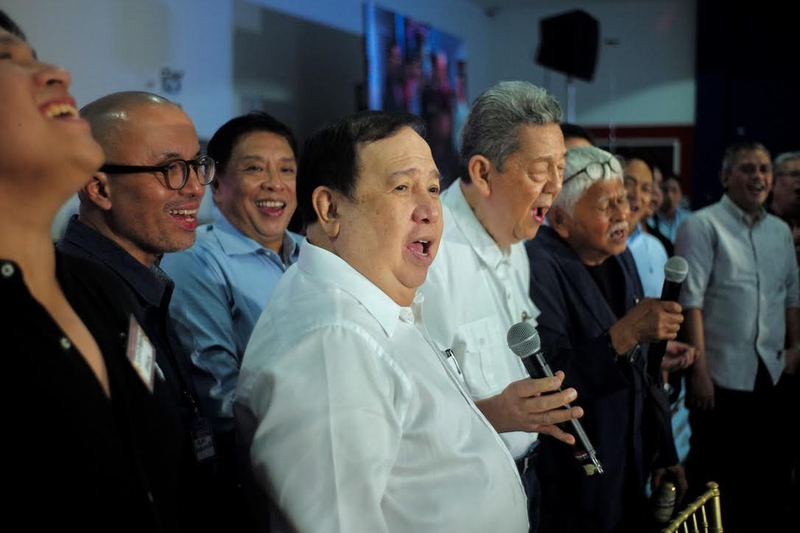
About the Author

Manuel "Butch" Tan 74
Manuel G. Tan ’74, known to many as Butch, is a passionate photographer and writer. He has spent years capturing the quiet moments and small stories that often go unseen. Through his images and words, he invites others to notice the beauty of imperfection, the gift of the now, and the mystery in the everyday. He resents criticism, is paranoid about praise and compliments, and hates overthinking because it hurts.
